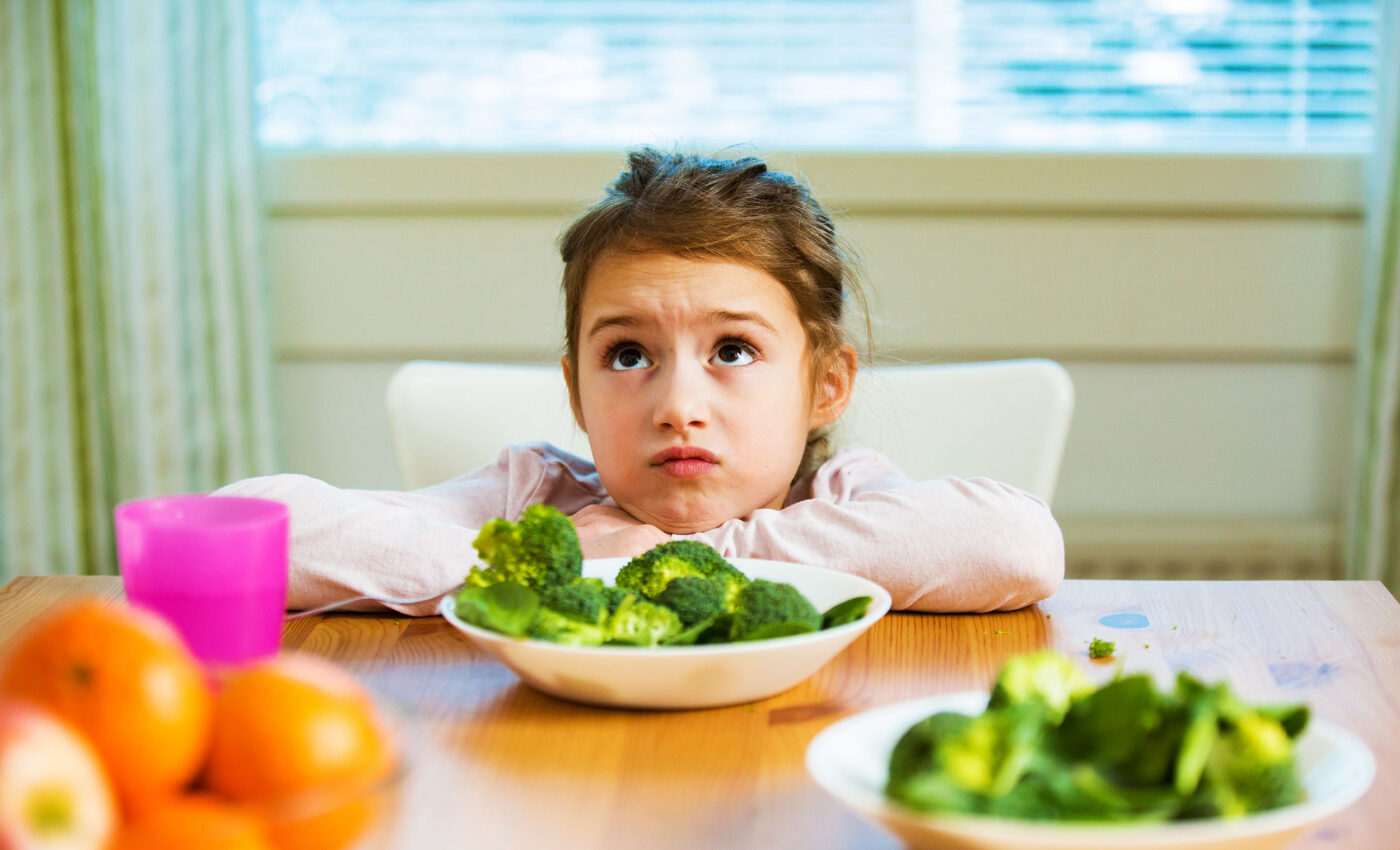
Why do so many kids dislike vegetables? A new study found out
Humans are inherently social creatures, often learning and drawing conclusions from observing others. This is particularly true in the realm of eating habits and food preferences.
A concept known as social modeling plays a crucial role in shaping our dietary choices, where we often look to others as benchmarks for what and how much to eat. But how deep does this influence go?
Facial expressions and food preferences
A recent UK study delved into this question, examining the impact of observing facial expressions on food preferences, specifically regarding raw broccoli.
Dr. Katie Edwards from Aston University School of Psychology, the study’s lead author, emphasized the findings in the journal Frontiers in Psychology.
“We show that watching others eating a raw vegetable with a negative facial expression reduces adult women’s liking of that vegetable, but not their desire to eat it,” Edwards explained.
Negative vs. positive facial expressions
Involving over 200 young women, the study showed participants videos of various adults consuming raw broccoli with varying facial expressions — positive, neutral, and negative.
This focus on women was due to potential gender differences in how eating behaviors are modeled. The findings were somewhat surprising: negative expressions significantly lowered the vegetable’s liking, but positive expressions didn’t enhance it.
“Watching others eating a raw vegetable with a positive facial expression did not increase adults’ vegetable liking or eating desire.”
Edwards offered potential reasons for this. Avoidance of foods shown with disgust could be a natural defense against harmful or unpalatable foods.
“This might imply that watching someone eating a raw vegetable with positive facial expressions does not seem an effective strategy for increasing adults’ vegetable consumption,” said Edwards.
Future implications for food preferences
This study highlights the complexity of the relationship between apparent enjoyment and actual food preferences.
While the focus was on adult reactions, these insights might extend to children, who are generally more hesitant to try vegetables.
“For example, if a child sees their parent showing disgust whilst eating vegetables, this could have negative consequences on children’s vegetable acceptance,” Edwards pointed out.
A unique aspect of this study was the use of video clips instead of live demonstrations or static images, providing a more realistic view of dynamic facial reactions.
However, Edwards notes that future research should explore the effects of witnessing live eating experiences and how these findings translate to actual vegetable intake among adults.
“We also need more research to see whether the findings from this study translate to adults’ actual intake of vegetables,” Edwards concluded.
In summary, while we understand the powerful role of social modeling in shaping eating behaviors, much remains to be discovered about the nuances of this influence, especially in live settings and across different age groups.
The full study was published in the journal Frontiers in Psychology.
—–
Like what you read? Subscribe to our newsletter for engaging articles, exclusive content, and the latest updates.
Check us out on EarthSnap, a free app brought to you by Eric Ralls and Earth.com.
—–













